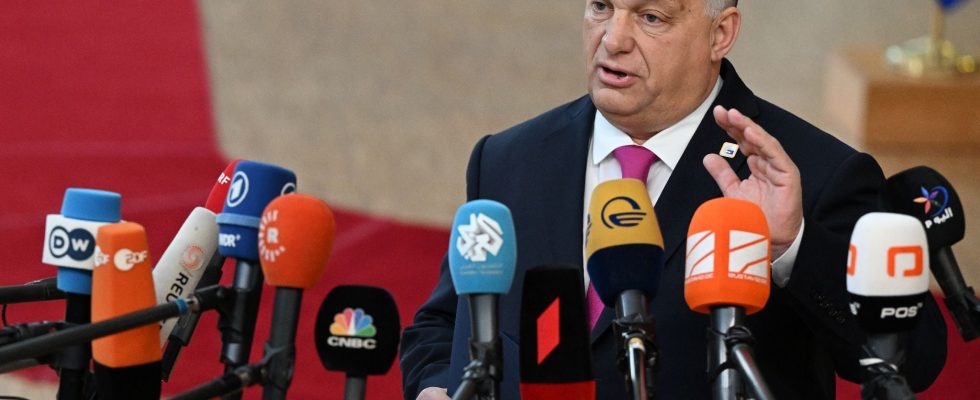“We appreciate.” The Kremlin spokesperson, Dmitri Peskov, welcomed with these words the veto brandished by the Hungarian Prime Minister, Viktor Orban, to the new European aid of 50 billion euros (33 billion in loans and 17 in donations) to of Ukraine. This blockage is not a surprise: Orban is the only leader of the Twenty-Seven to have maintained good relations with Vladimir Putin; and he also continues to vilify Brussels, which still refuses to pay him 21 billion euros in European funds for repeated breaches of the rule of law.
But the Hungarian populist roué, a fan of the balance of power, did not remain indifferent to the release of a first tranche of 10 billion euros, two days earlier, by the Commission. By conveniently absenting himself at the time of a vote requiring unanimity, he allowed Ukraine to obtain the opening of negotiations for Ukraine’s accession, almost two years after the start of the war of invasion of Russia against his country. This is a precious sesame for kyiv, much more crucial, at this stage, than the 50 billion euros.
“It is the most important linking mechanism to Europe that one can imagine for a country which is not yet a member,” recalls Jean-Dominique Giuliani, president of the Robert-Schuman foundation. The opening of the negotiations is proof that Ukraine has made efforts to have stable democratic institutions, fight against corruption. It will force it to lead a permanent transformation towards our European criteria, the most advanced in the Western world, without going back , with enormous Community assistance on the financial, administrative, political level, etc.”
In kyiv, there is no mistake. “It is a victory for Ukraine, for all of Europe, a victory that motivates, inspires and makes us stronger,” reacted President Volodymyr Zelensky, while the White House, for its part, welcomed a “ historic decision. “The opening of accession negotiations is the moral boost Ukraine needed, underlines Georgina Wright in a tweet, Deputy Director of International Studies at the Institut Montaigne. Negotiations will take time, but this shows that attitudes are changing within the European Union.”
The decision is all the more crucial for Ukraine as it finds itself in a difficult position, on the eve of winter. His summer counter-offensive did not allow him to truly break through the Russian defense lines. On the other hand, they are redoubling their efforts – and increasing losses – on the Donbass front, grabbing a few square kilometers in recent weeks, particularly in the Avdiivka sector. The Ukrainian authorities claim to have repelled more than fifty attacks there.
To withstand the shock of war, Ukraine therefore vitally needs European aid of 50 billion between now and 2027 – and the envelope of 60 billion from the American Congress, blocked by certain Republican elected officials. But analysts are relatively optimistic about a solution at the start of 2024. “Most of the aid is intergovernmental and non-community, so it does not depend on the Commission,” points out Jean-Dominique Giuliani. The President of the European Council, Charles Michel, also showed his optimism for the next summit in January, making it clear that there were solutions to deliver the funds to kyiv, if Orban persists with his veto.
